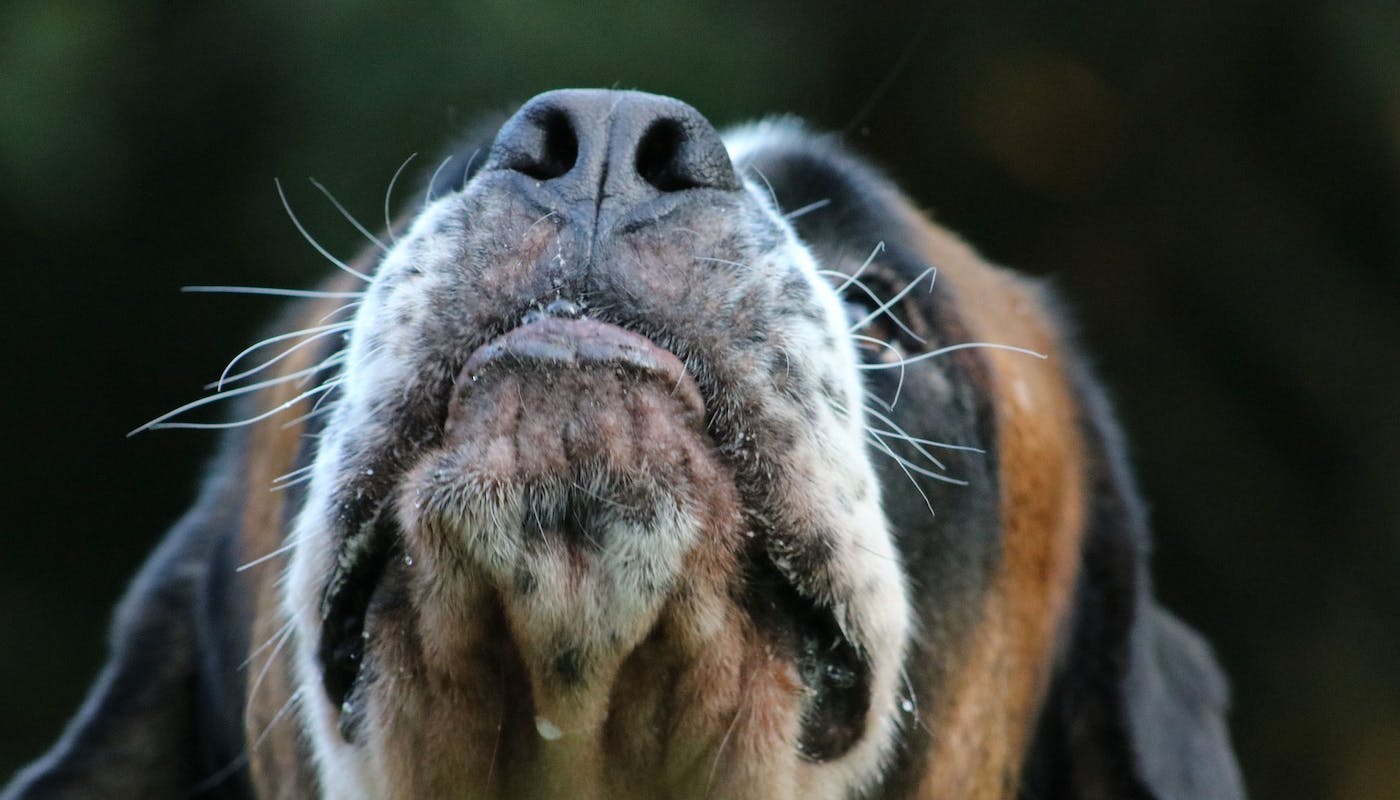What’s Up With Whiskers - Everything You Need To Know?
- Animal whiskers are connected to a huge network of nerves and blood vessels
- They're a lot more sensitive than normal fur
- They help dogs understand and process the world around them
- Although it's normal for them to fall out naturally, they should never be pulled out or cut
When your dog’s whiskers fall out it can be alarming – why is it happening? Are dog’s whiskers meant to fall out? Is there something wrong with them? But before you jump to conclusions, it’s worth knowing that there are a number of reasons it might be happening.
What Are Whiskers?
Whiskers are the coarse hairs that grow around the chin, muzzle, and eyebrows on dogs and other animals. The purpose of whiskers is more than just aesthetic. Each whisker grows out of a follicle which contains a vast network of nerves and blood vessels, making whiskers far more sensitive than regular fur.
40% of the sensory area of a dog’s brain is in tune with its whiskers. They’re used to:
- Help dogs navigate
- Aid vision
- Transmit messages about what’s around them
- Measure distance and the size and shape of objects
- Detect vibrations and changes in the air.
Whiskers are like the eyes and fingertips combined into one handy set of hairs. So they’re pretty important in terms of how dogs experience the world.
Is It Normal For Dog’s Whiskers To Fall Out?
All hairs are prone to breakage and fall out from time to time. So if you notice your puppy’s whiskers falling out there’s probably nothing to worry about. In most cases this is entirely natural, and they will grow back new ones in no time.
If your dog loses their whiskers as a result of an injury, you might notice that they struggle with some of their sensory awareness. This can be distressing for the injured dog but, as their whiskers grow back, their senses will return to normal.
Does It Hurt When Dog’s Whiskers Fall Out?
Although the follicle that holds the whisker hair is highly sensitive, the hair itself cannot feel pain. So when a whisker falls out naturally, it doesn’t hurt your dog. Like shedding their coat, it’s simply time for the hair to go.
However, due to the nerves and blood vessels in the whisker’s follicle, it is very painful for dogs to have these hairs plucked or pulled out unnaturally. Like human hair, some will fall out over time but when they are pulled, it can hurt.
Why Do Dog’s Whiskers Fall Out If They Need Them?
Although it’s true that much of a dog’s sensory awareness and understanding of their surroundings is informed by their whiskers, losing a couple here and there won’t make any difference to their sensory abilities.
However, if they are removed unnaturally or trimmed, it can have a big impact on how your dog is able to navigate their way around. If this happens, you might notice that your dog is disoriented until their whiskers grow back.
When Should I Worry About My Dog’s Whiskers Falling Out?
While dogs do lose their whiskers naturally, if you notice that a large amount have disappeared at one time it could indicate that something else is wrong. One potential cause of whisker loss in dogs is alopecia, a condition that affects both the coat and whiskers, leading them to fall out.
If you think this could be the case for your dog, take them to the vet who will be able to prescribe a course of medication.
However, with a well balanced and healthy diet, and no issues with your dog’s blood flow, they should be able to grow long and healthy whiskers that only fall out when they’re naturally ready.
How Can I Stop My Dog’s Whiskers From Falling Out?
Because dogs shed their whiskers naturally there is no way to prevent them from falling out completely, just like you can’t stop them from shedding. But there are some steps you can take to ensure that your dog’s whiskers are healthy and in good condition.
- Do not pluck or trim the whiskers
- Look after their skin to ensure good blood flow to the blood vessels and nerve endings
- Be careful not to brush the whiskers to roughly
- Be gentle when touching or stroking the whisker area
- Look out for unnatural levels of whisker loss
